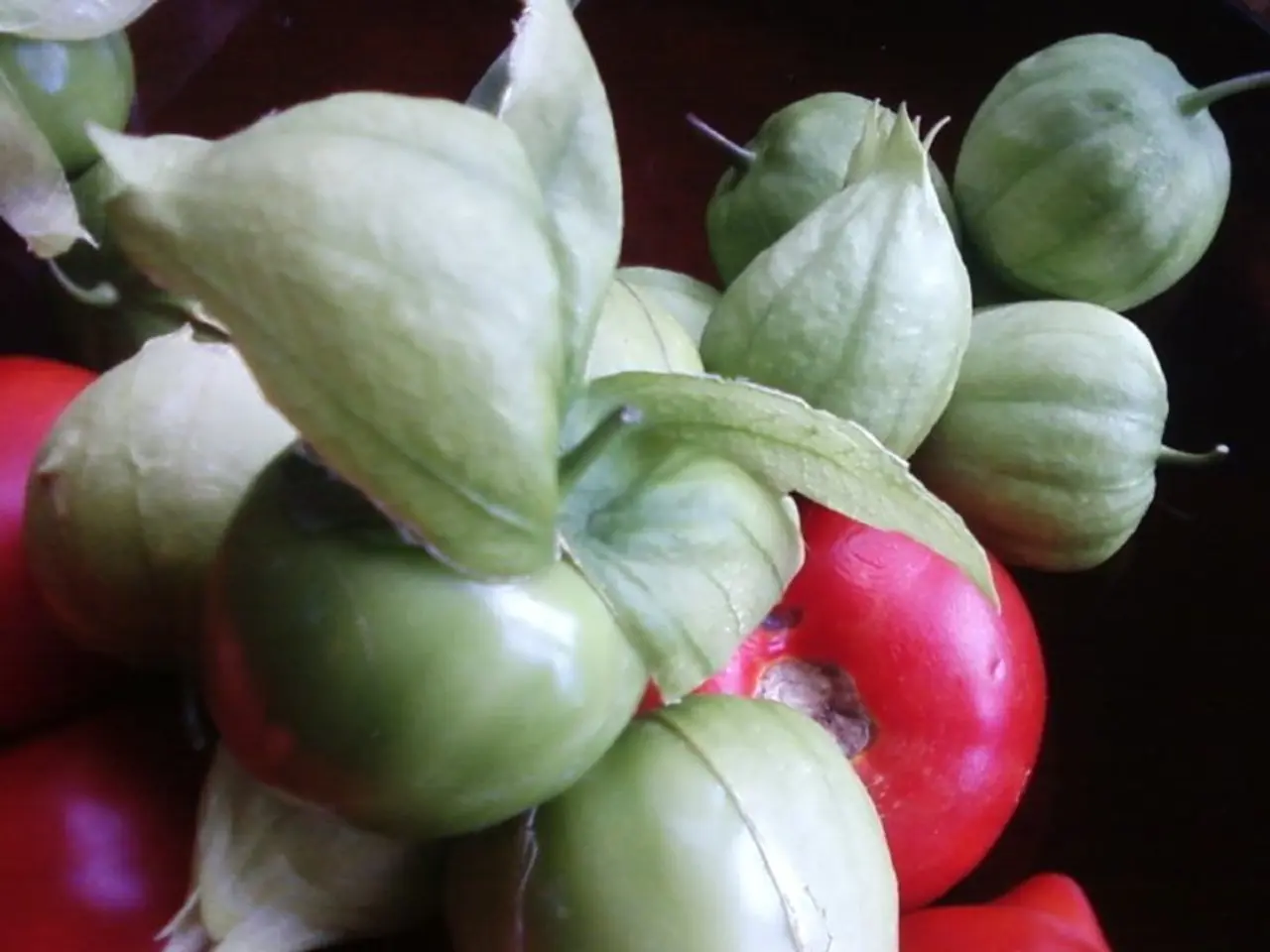AlternativeMethods for Odorless Pest Management in Organic Vegetable Farms
Embracing organic methods in both traditional and container vegetable gardens can lead to a balanced ecosystem, promoting sustainability and safer food production. Here's how:
Companion Planting
Growing pest-repellent plants alongside vegetables is a natural way to confuse or deter pests. For instance, basil near tomatoes or peppers masks their scent from pests, while marigolds, lemongrass, chives, or neem trees naturally repel insects. This approach supports ecological balance by attracting beneficial insects and pollinators that keep pest populations in check [1][2][3].
Introducing Beneficial Insects
Releasing or attracting natural predators, such as ladybugs, lacewings, parasitic wasps, and beneficial nematodes, helps reduce harmful insect populations without chemicals. These organisms control pests like aphids, mites, flies, leaf miners, caterpillars, root grubs, and fungus gnats, promoting a healthy underground ecosystem [3].
Natural Repellents and Sprays
Homemade sprays using ingredients like neem oil, garlic, chili water, soap, and water provide safe, non-toxic pest management options. These sprays minimize harm to beneficial soil organisms and insects while controlling targeted pests [1].
Cultural Practices and Garden Hygiene
Maintaining healthy soil through composting and crop rotation reduces pest buildup. Removing dead foliage, improving air circulation, and avoiding overwatering prevent fungal diseases and insect proliferation. Clean gardening practices are foundational to long-term pest resistance [1][3].
Physical Barriers and Landscape Design
Using barriers (like gopher wire or floating row covers) and strategically placing pest-deterring plants near garden edges can create natural protective zones. In container gardens, proper spacing and ventilation reduce pest habitat [2][4].
Other Strategies
- Crop rotation: Changing the types of plants grown each season confuses pests and keeps them guessing.
- Organic pest control is safe for families and pets as it does not leave harmful residues.
- Tomatoes and basil are good companion plants as basil helps deter whiteflies and aphids.
- Chives help deter carrot flies when planted with carrots.
- Balancing the ecosystem by planting a variety of crops can help attract pollinators and predatory insects, creating a balanced ecosystem.
- Using water with a few drops of dish soap can help knock out soft-bodied pests like aphids.
- Integrated Pest Management (IPM) is a smart way to keep container plants healthy by focusing on natural methods.
- Regularly cleaning up fallen leaves and debris removes hiding spots for pests.
- Organic pest control can lead to healthier soil, which is beneficial for plants.
- Cabbage and dill are good companion plants as dill helps deter cabbage worms.
- Nasturtiums help attract beneficial insects when planted with cabbage.
- Peppers and basil are good companion plants as basil helps deter thrips.
- Handpicking pests by hand is a simple way to keep plants safe without using chemicals.
These strategies collectively promote a balanced ecosystem by encouraging biodiversity—beneficial organisms flourish, pests are naturally controlled, and soil vitality is enhanced. This minimizes dependency on synthetic chemicals, supports sustainability, and ensures safer food production for both traditional and container vegetable gardening environments [1][2][3][4].
[1] University of California Agriculture and Natural Resources. (2021). Integrated Pest Management. https://ipm.ucanr.edu/ [2] Cornell University. (2021). Organic Gardening. https://garden.cornell.edu/ [3] National Gardening Association. (2021). Organic Gardening. https://www.garden.org/ [4] Royal Horticultural Society. (2021). Organic Gardening. https://www.rhs.org.uk/advice/profile?pid=118
- Incorporating vegetables grown using organic methods can contribute to a balanced ecosystem and promote sustainability.
- By understanding companion planting, gardeners can combine pest-repellent plants with vegetables to create natural pest deterrents.
- For example, basil near tomatoes or peppers, or marigolds near any vegetable garden, can provide effective pest protection.
- When embracing the strategy of introducing beneficial insects, ladybugs, lacewings, parasitic wasps, and beneficial nematodes can help control various harmful insect populations.
- Homemade natural repellents, such as neem oil, garlic, chili water, soap, and water, can act as safe pest management options.
- Effective cultural practices in vegetable gardens include composting, crop rotation, and gardening hygiene for long-term pest resistance.
- Proper barriers, landscape design, and strategic placement of pest-deterring plants can create natural protective zones, particularly useful in container gardens.
- Crop rotation, organic pest control, and smart integrated pest management (IPM) are important strategies for maintaining the health of container plants.
- In addition to the natural methods mentioned, cleaning up fallen leaves and debris can help remove pest hiding spots and minimize their presence.
- A balanced ecosystem can be achieved by introducing a variety of crops, which encourages beneficial organisms, attracts pollinators, and controls pests organically.
- Healthier soil, often a result of organic pest control, benefits plant growth and enhances the overall environmental sustainability.
- Applying a few drops of dish soap to water can help knock out soft-bodied pests like aphids.
- Some specific companion planting relationships include cabbage and dill, nasturtiums with cabbage, peppers and basil, and chives with carrots, as these plant pairings can help deter pests or attract beneficial insects.




